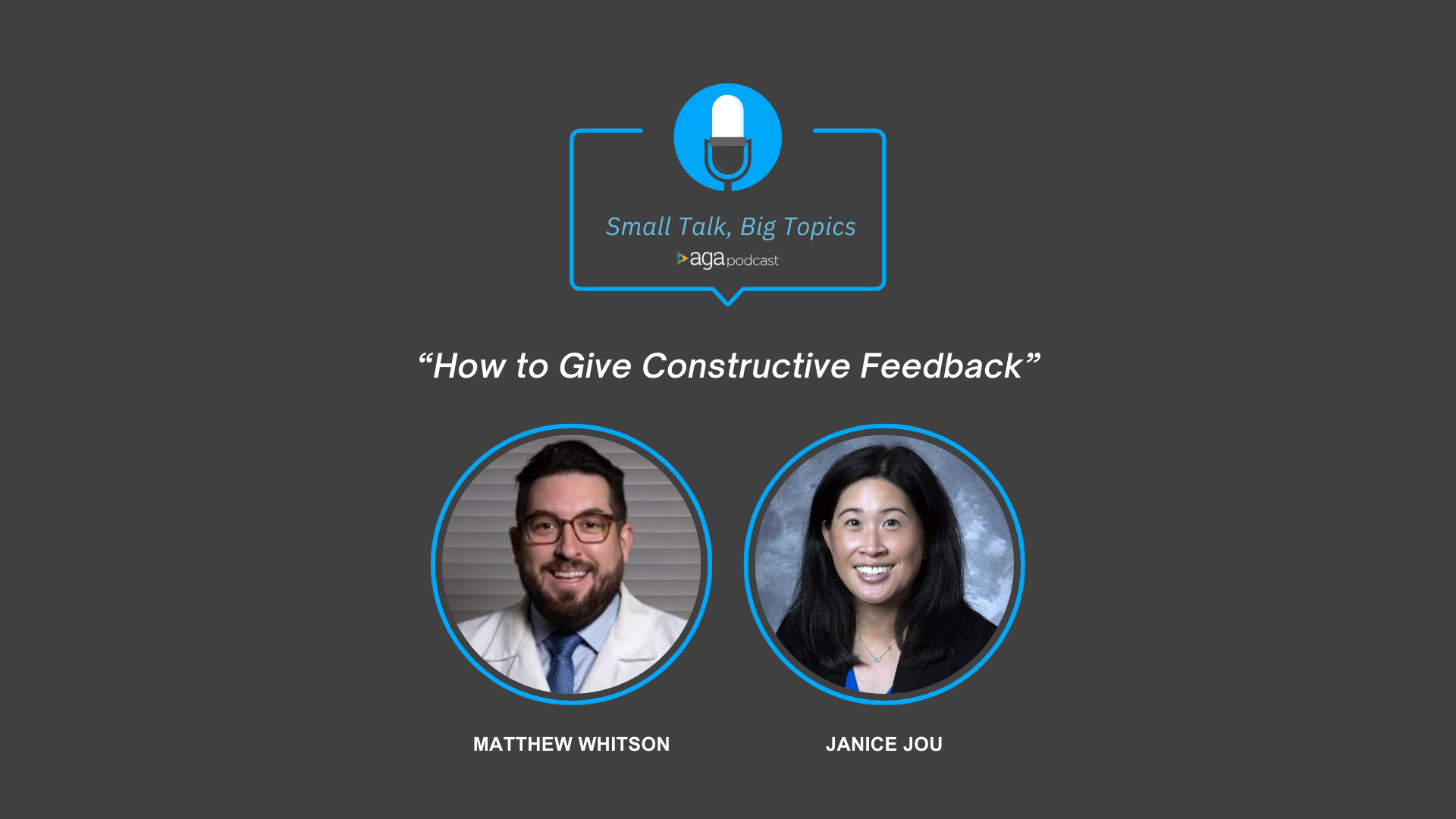Small Talk, Big Topics is live from Digestive Disease Week® 2024!
In this special live episode, host Dr. Matthew Whitson is live from #DDW2024 with special guest Dr. Janice Jou. Dr. Jou is a returning guest from one of our most popular episodes from season one. She is a transplant hepatologist at the Portland VA and currently serves as professor of medicine and fellowship program director at Oregon Health Science University. Don’t miss her insight as she shares advice all about what she wishes she knew when going into her first job in gastroenterology.
To kick off the episode, Dr. Jou shares that her first job ended up being a completely different position than the one she interviewed for at OHSU. She had clinical, endoscopy, hepatology inpatient call responsibilities without any administrative responsibilities. She shares about the initial challenges of adapting into her new role and the mindset shift required when taking on new responsibilities. Creating boundaries for herself around the things she was and was not comfortable with, and having the courage to say no, were essential. The consequences of her decisions became quickly apparent, and she realized the importance of having confidence in the choices she makes by communicating clearly with patients about their different options.
Although hepatology is procedural, it’s inevitable that there will sometimes be complications and adverse outcomes. Dr. Jou explains that it’s crucial for clinicians to communicate their uncertainties and possible outcomes with patients so that the decision is ultimately a joint one. In the beginning of doing endoscopy, Janice admits she felt confused to be the one to hold the scope herself. She found that the bulk of her learning took place in those initial 6-9 months in terms of troubleshooting. Now, she tends to give her fellows 10 minutes maximum. She finds that the less time is taken, the more efficient the results are.
Being observant and listening to others is the best way she has been able to build a network of referral patterns. When working with others, Dr. Jou tends to look for people who also want to be collaborative and to do the right thing for their patients.
From there, the conversation shifts to discussing imposter syndrome. It’s something everyone – including Dr. Jou – experiences at different points throughout their career. She believes that we shouldn’t only see imposter syndrome for its negative components. However, it is important to occasionally ask yourself if you are doing the right thing. One of the worst places she believes a person could be is in a state of hubris.
When it comes to adopting leadership and management roles, Dr. Jou shares that perspective is the most important element for success. Physicians must understand that they work in a top-down system and are extremely privileged. She recognizes this and expresses how she deeply values all of the people who work for her to make her practice possible. With this in mind, it’s key that physicians ask themselves what they can do to make the jobs of everyone within their ecosystem just a little bit easier. Giving the people who work for you agency and autonomy is so important. Additionally, Dr. Jou has learned over time not to be reactionary when things go wrong, but rather to communicate with all sides to calmly come up with a solution.
She also shares that her biggest area of growth was that she learned to better understand herself, her “why” and who she wants to be. Not compromising these things in her professional life is very important to her.
Before wrapping up, Dr. Jou answers a few questions from the audience. She addresses how and when she knew what opportunities to say no to, the importance of encouraging emotional transparency – both positive and negative – with fellows and fellow faculty, and why it is so important to find the proper community to communicate your experiences with and to ensure others feel comfortable confiding in you.












